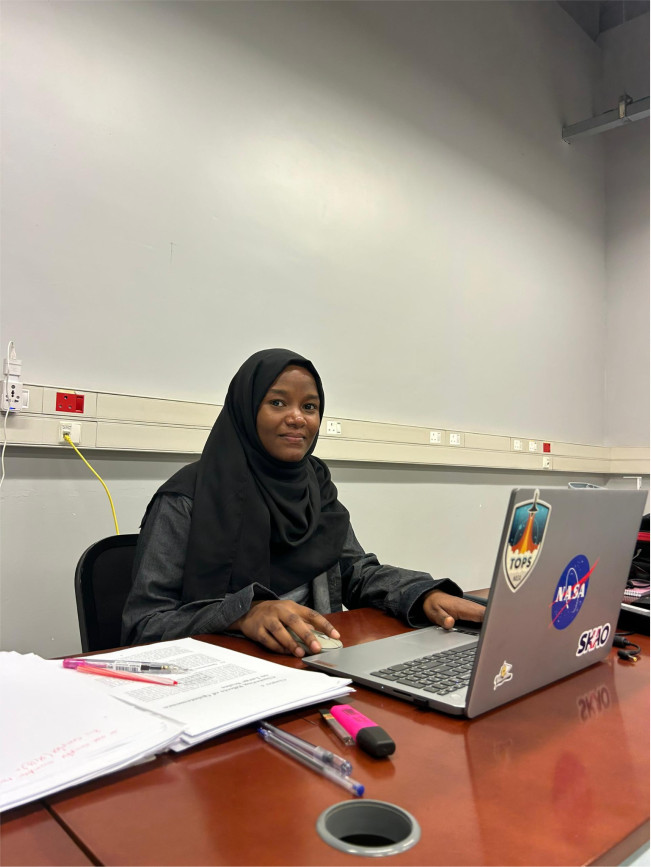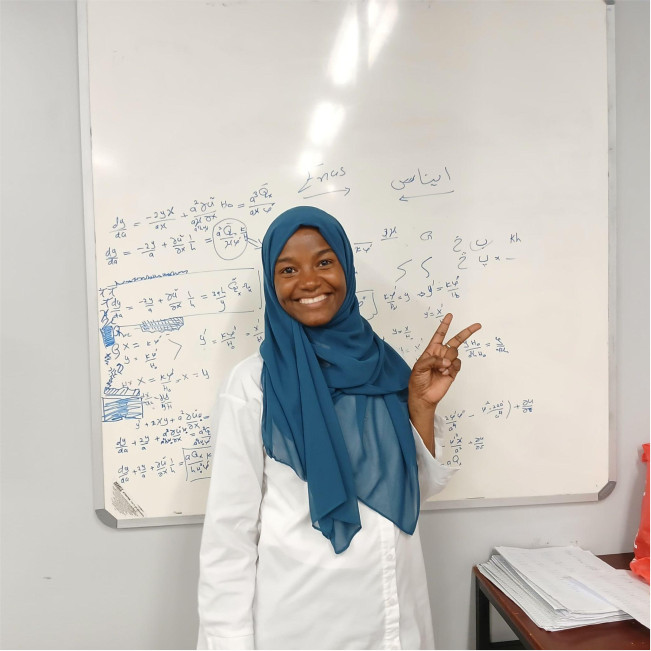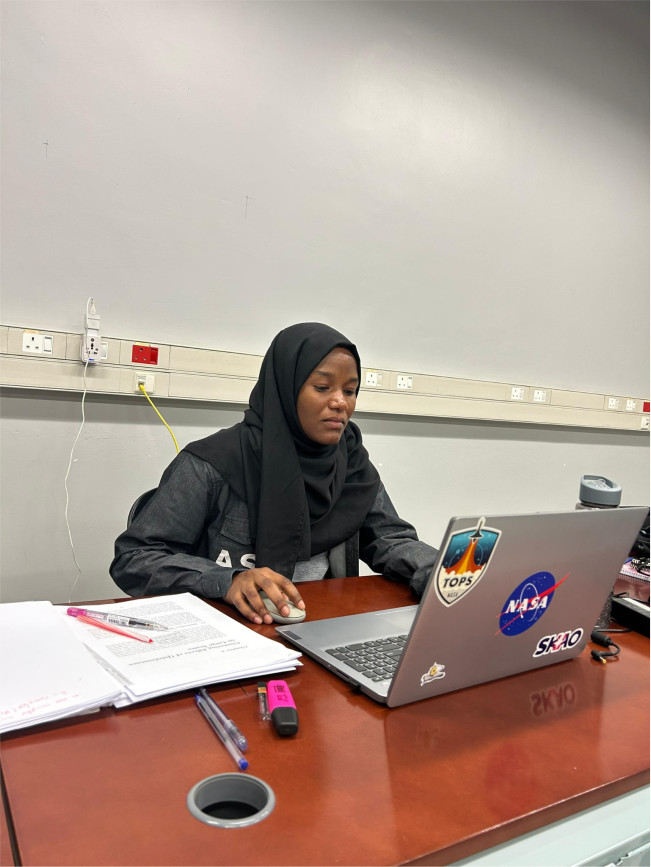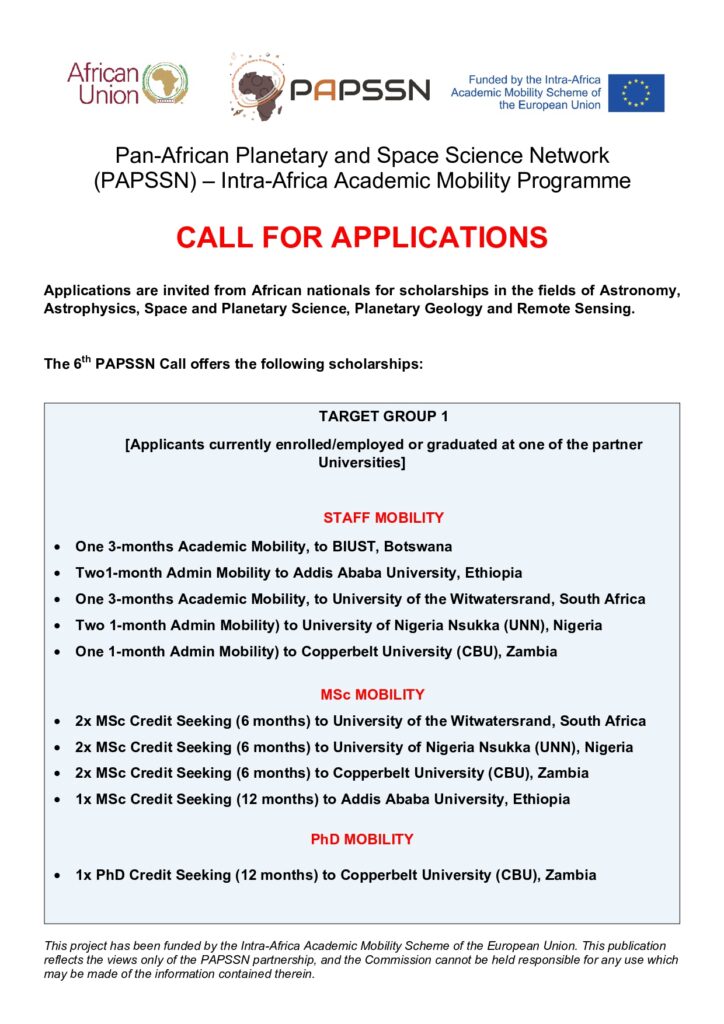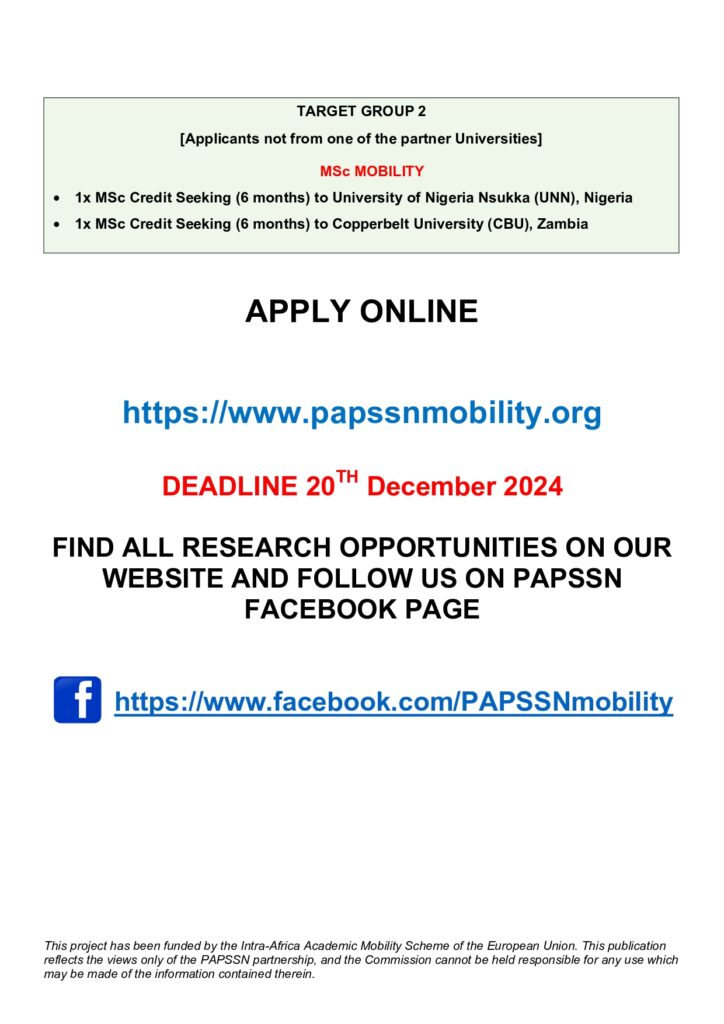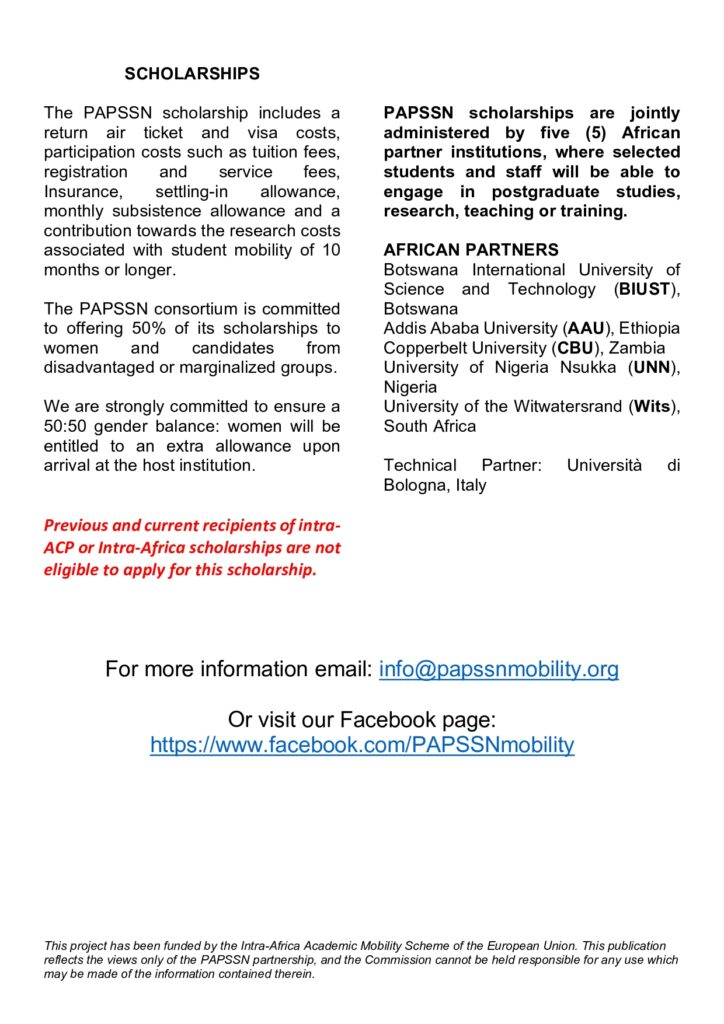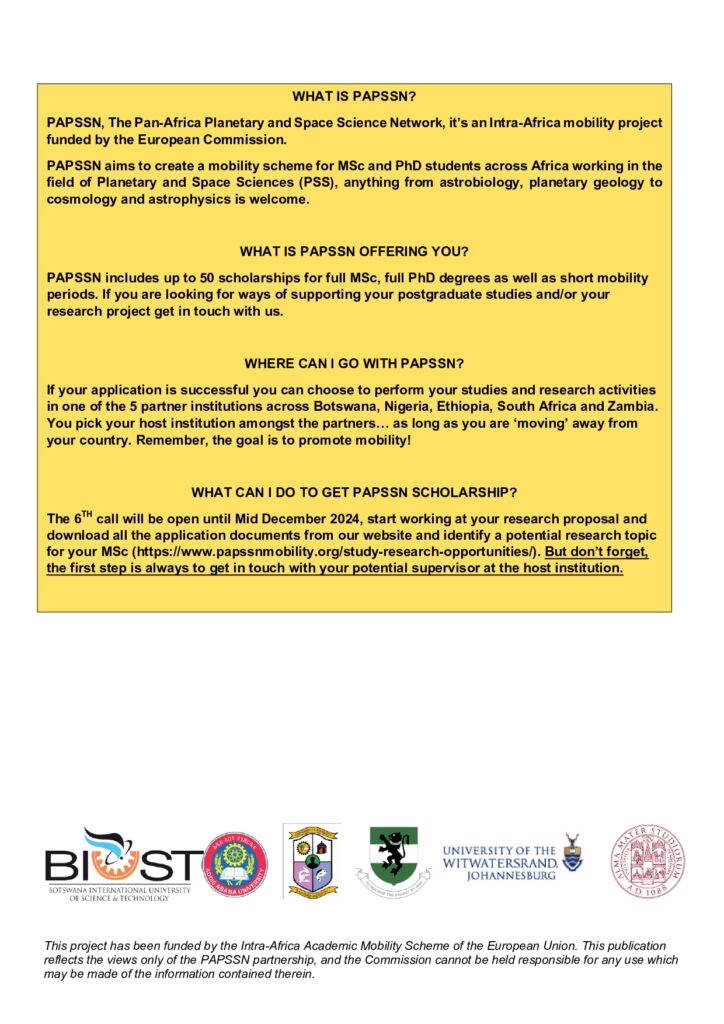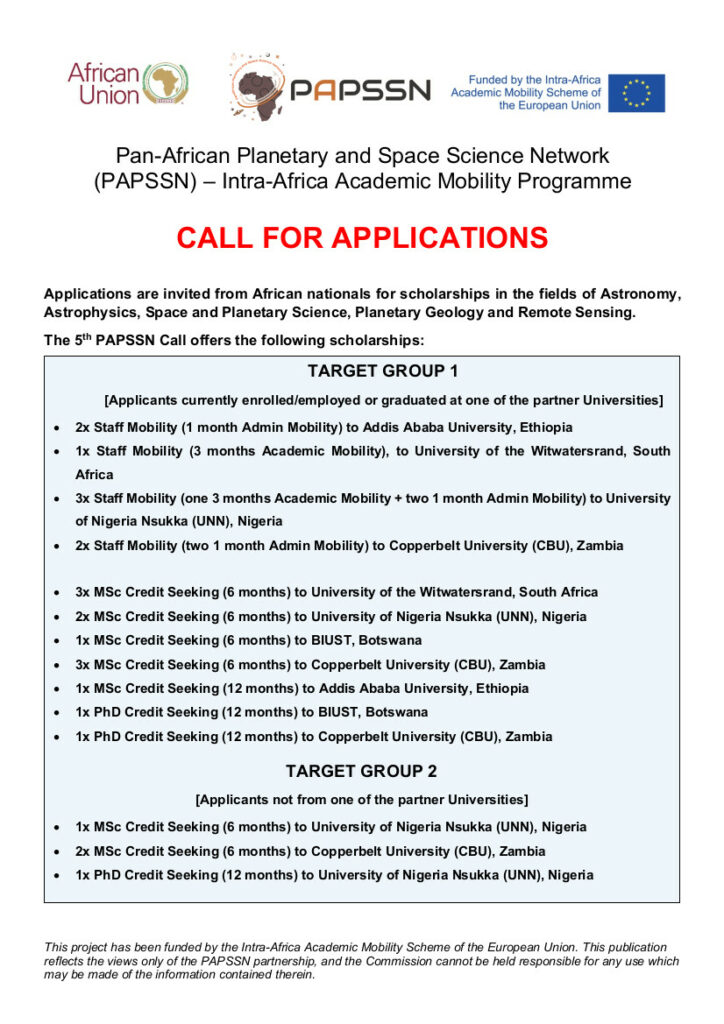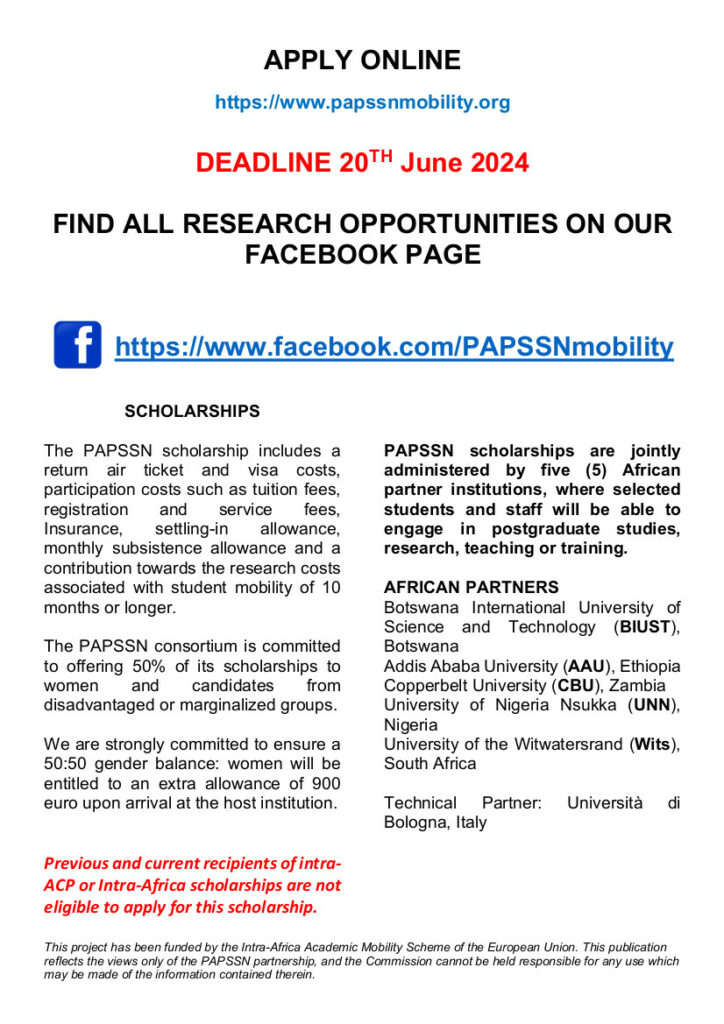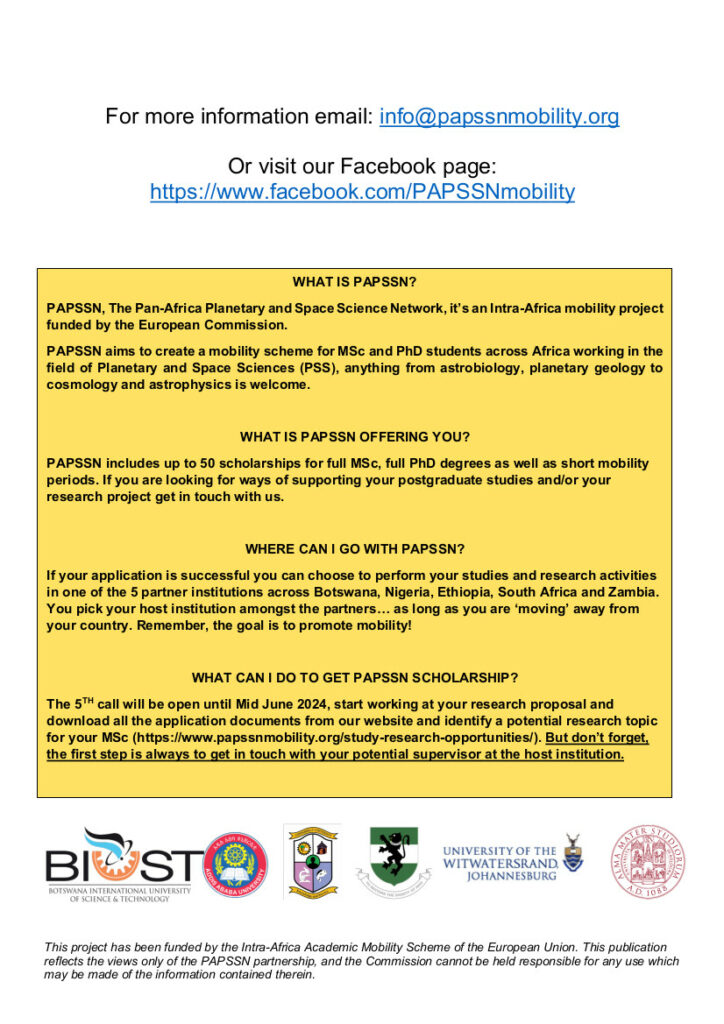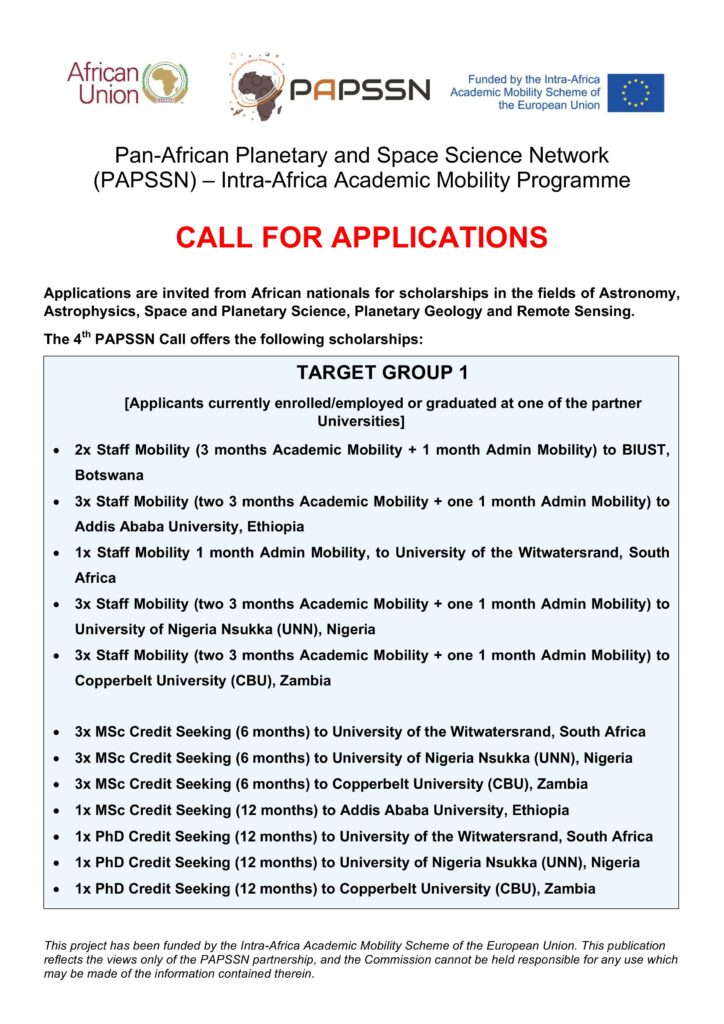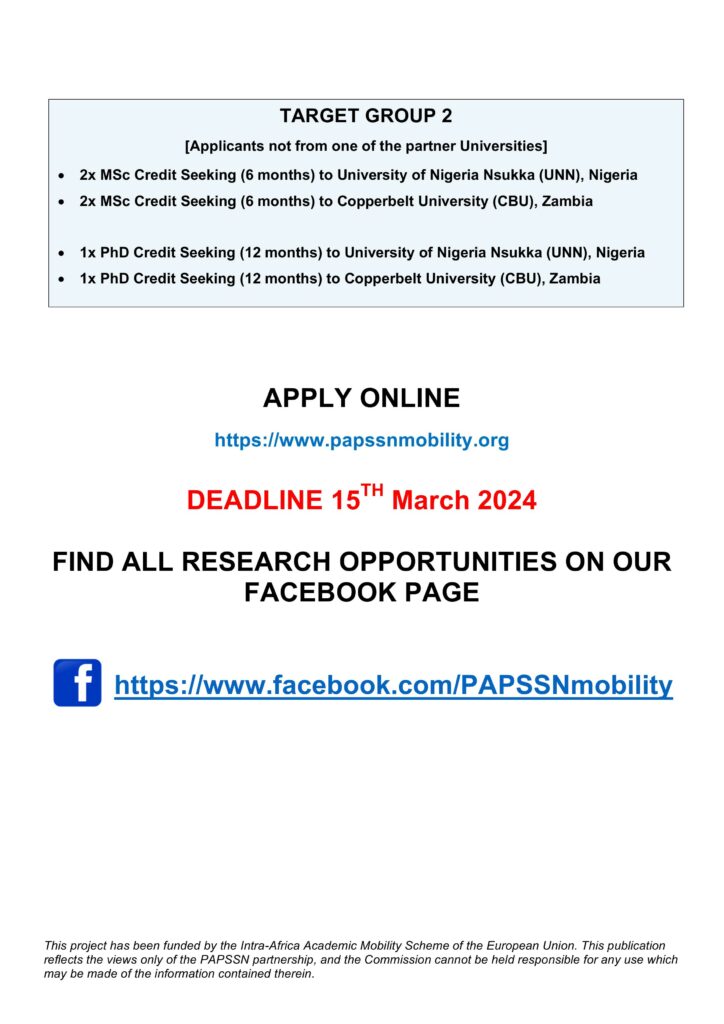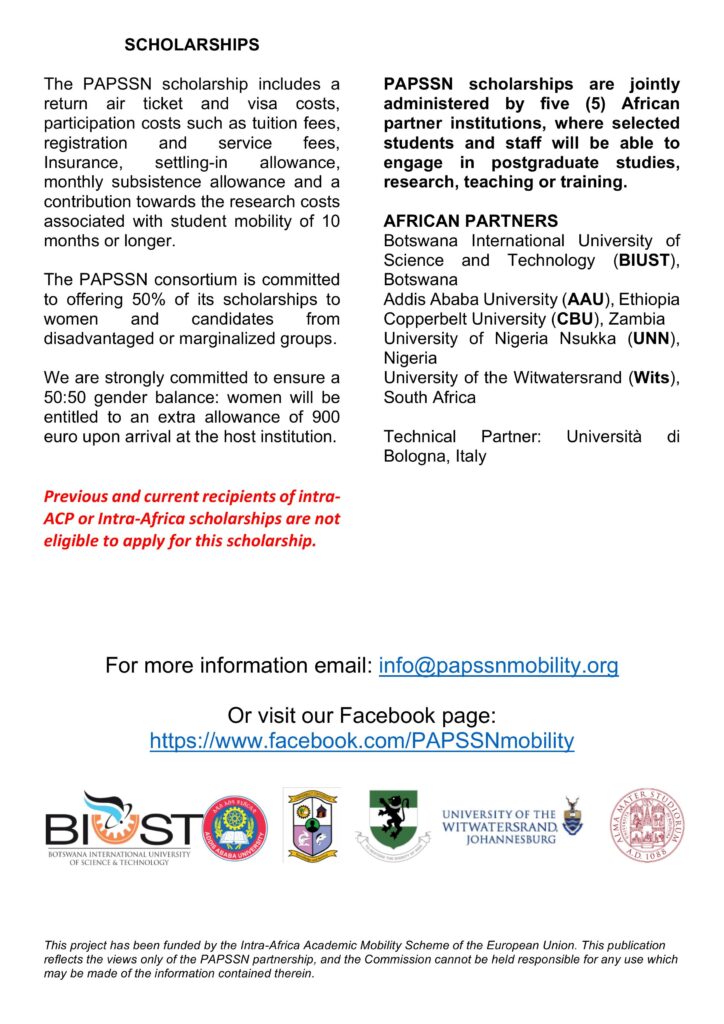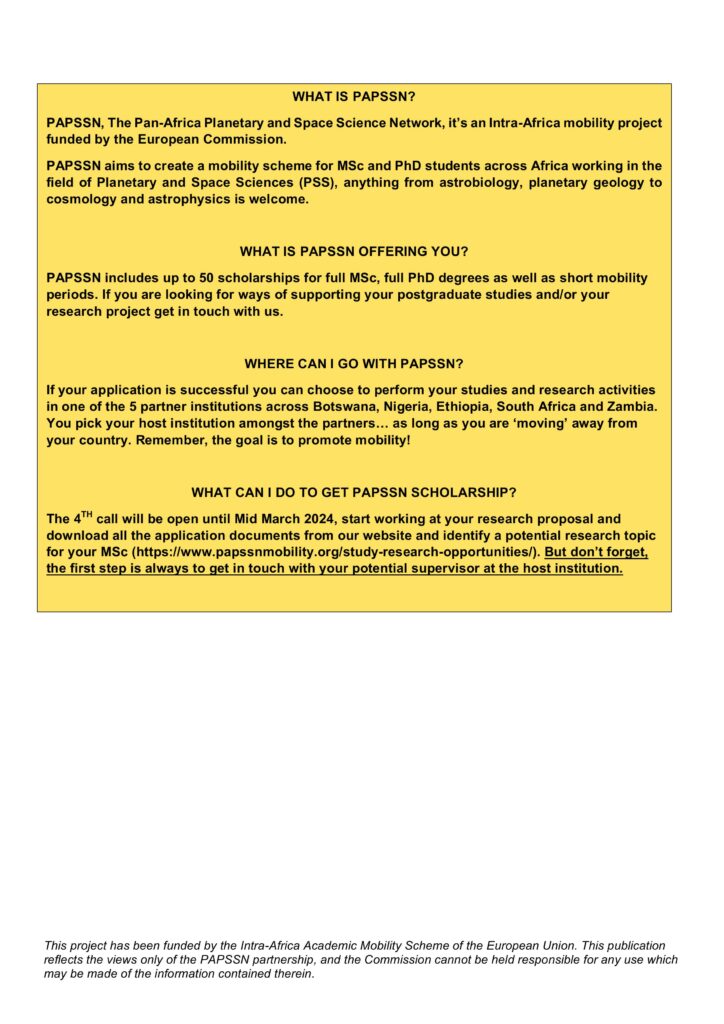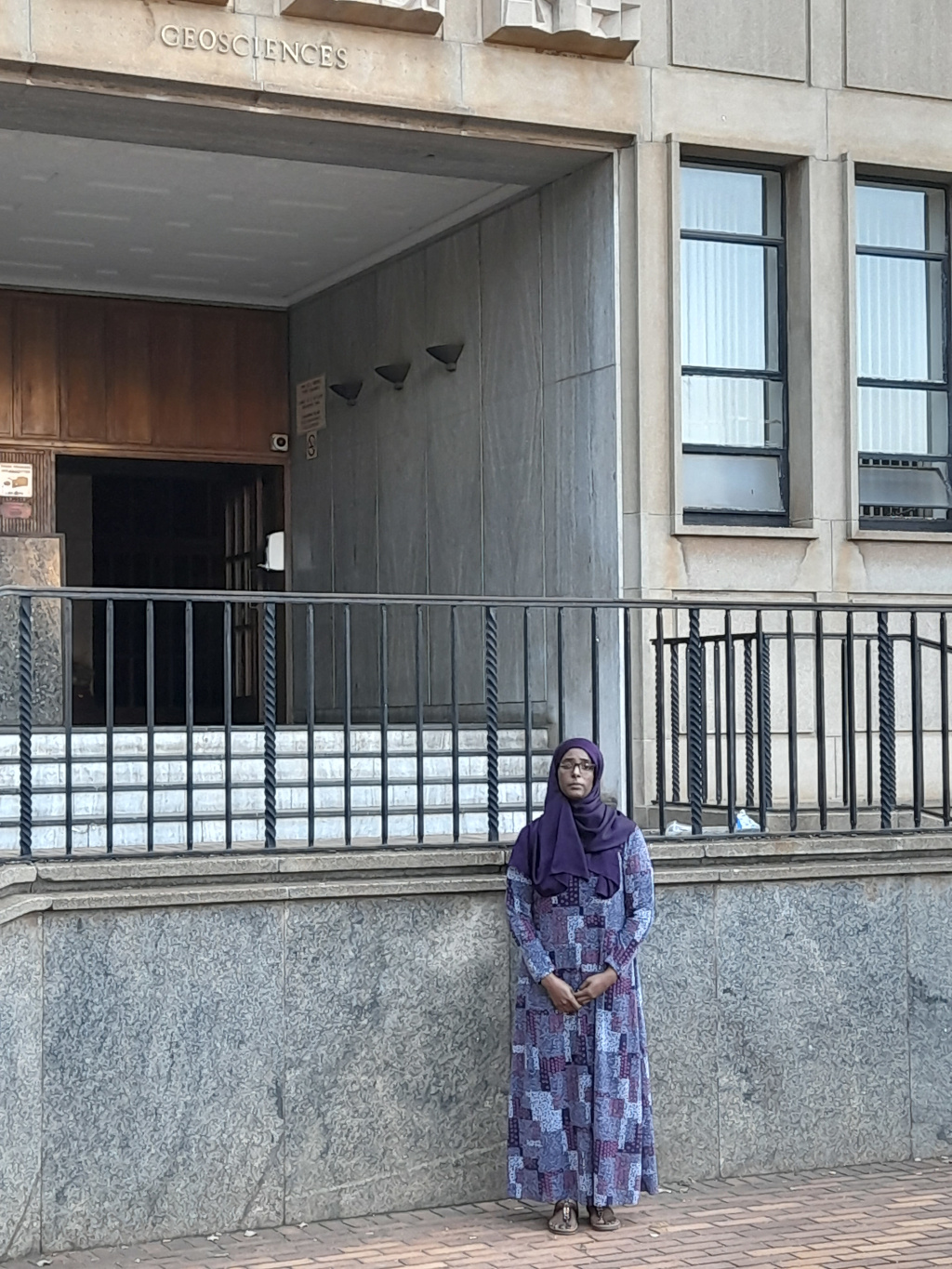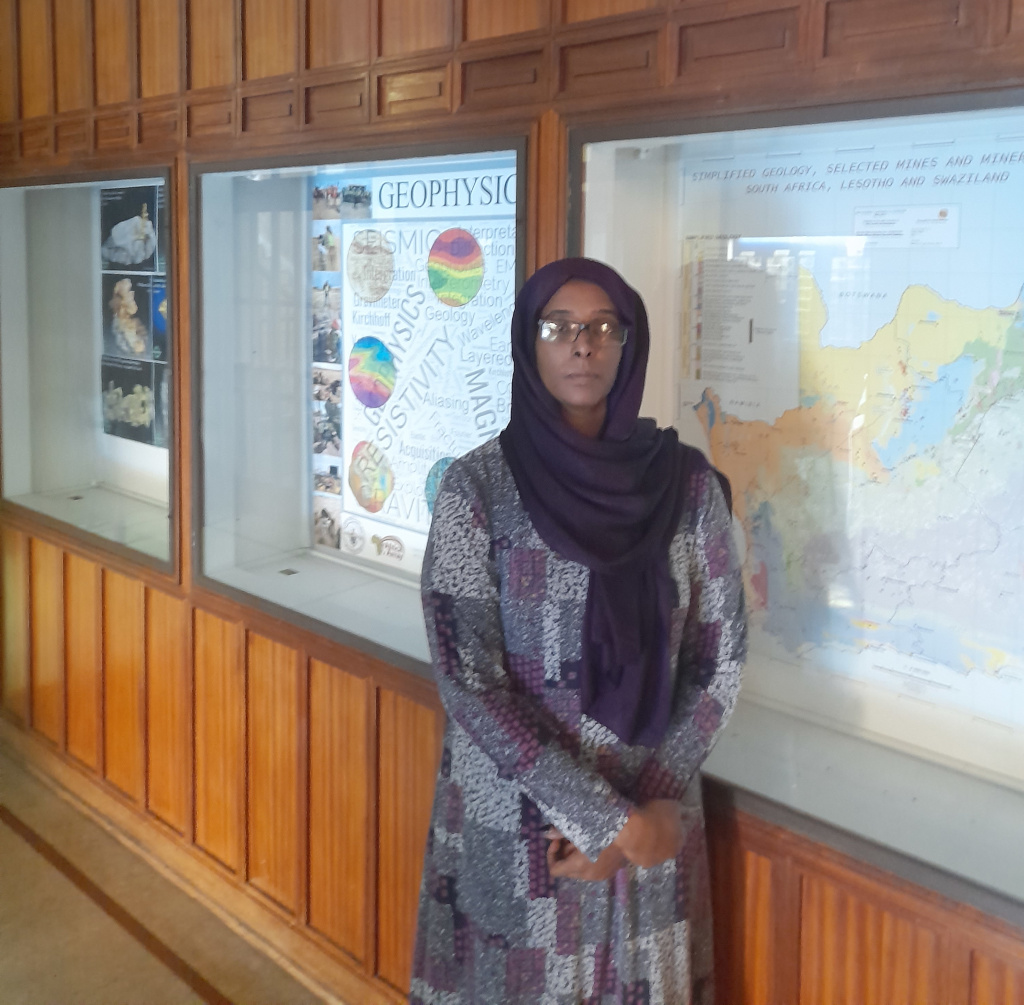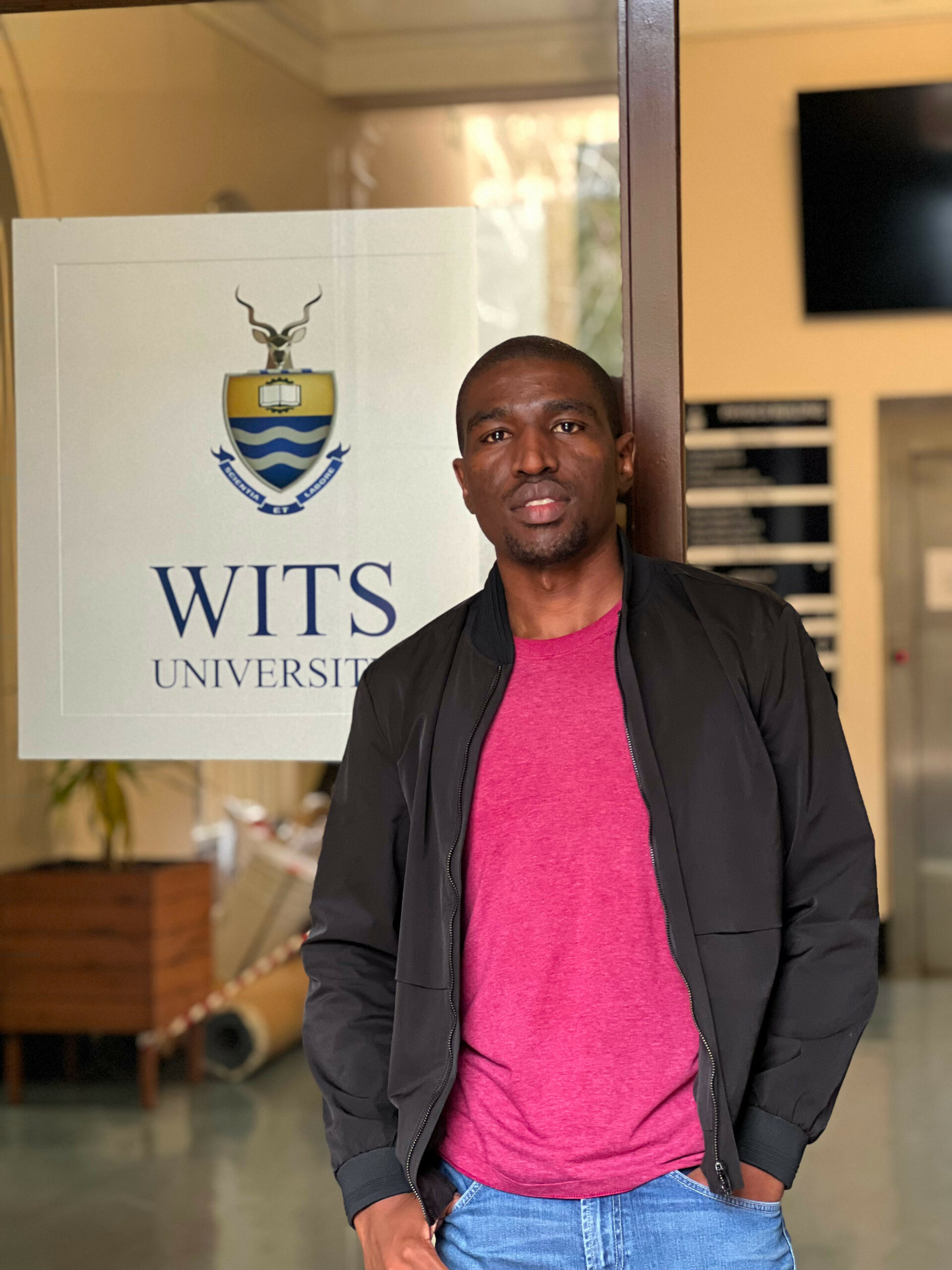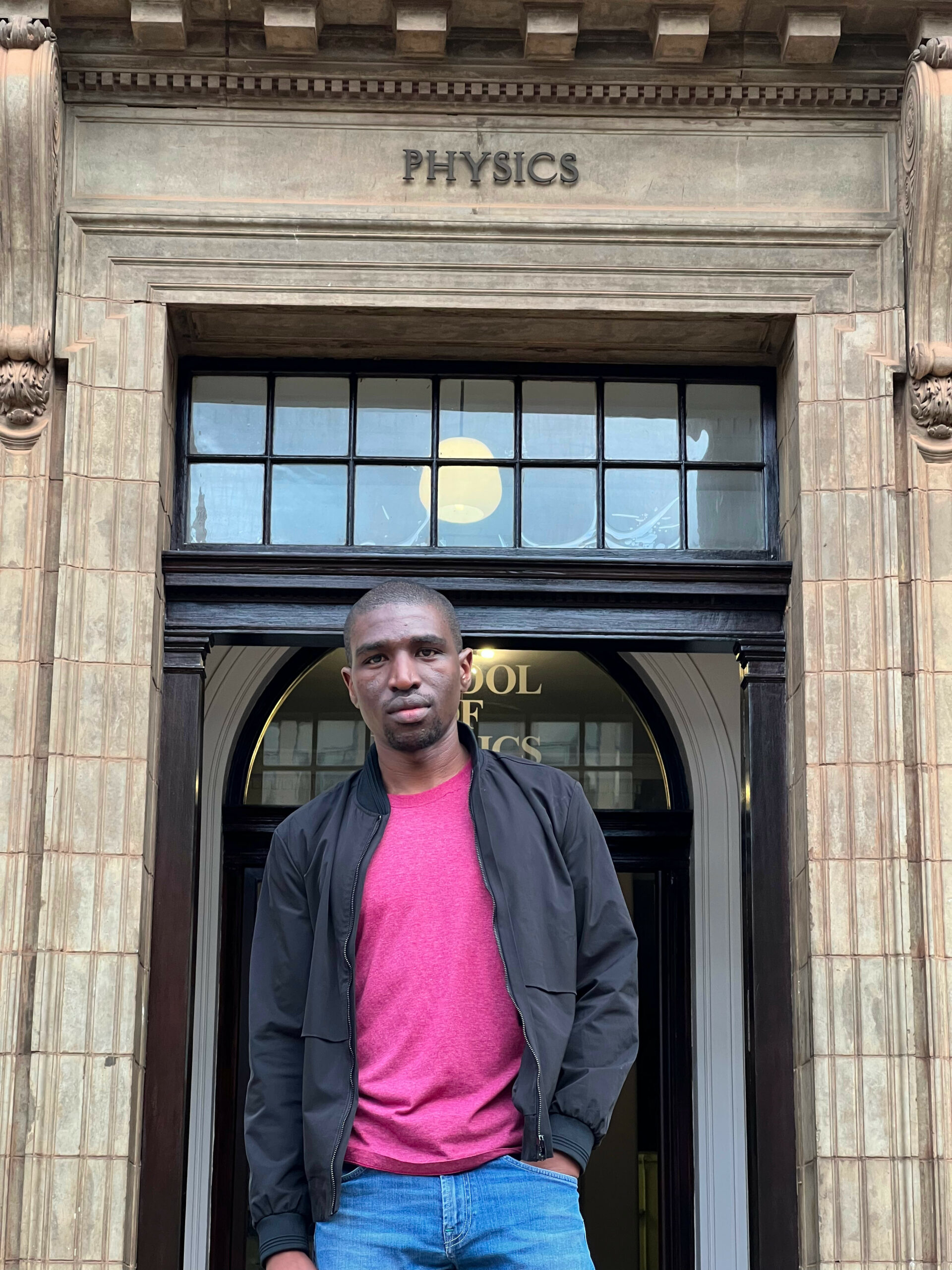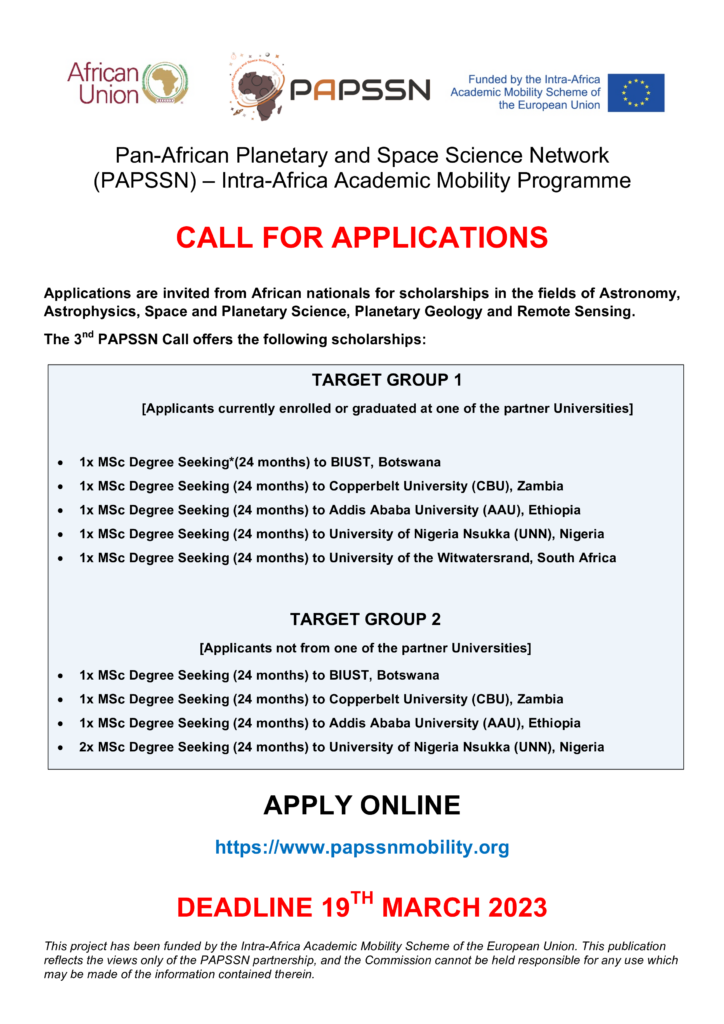After my undergraduate studies, I had an opportunity to work as a research assistant at Botswana International University of Science and Technology (BIUST). During my time at BIUST as a research assistant in Prof Franchi’s team, I come across an advertisement of the Pan-African Planetary and Space Science Network (PAPSSN) scholarship and I applied. The application was not overly difficult; it involved meeting several criteria, and I had the opportunity to be among the first intakes for the MSc program at Copperbelt University in Zambia, as it was a highly competitive scholarship. All arrangements from travels to insurance were done at BIUST before I went to Zambia. On August 21st, 2022, I left Botswana to begin my 24-month MSc program at the Copperbelt University in Zambia, where I pursued a Master of Philosophy Degree in Geology involving the investigation of meteor impact crater lakes in Zambia. I quickly settled in at the university’s post graduate campus hostels, a few kilometres away from the main campus in Kitwe, Zambia. Life in Kitwe was quite vibrant and bustling. Kitwe is a major industrial and commercial town mainly known for its mining activities. It is considered a peaceful town with low crime rate and affordable accommodation. During my stay there, I experienced firsthand the warmth and hospitality that Zambians are known for. The town also offered social amenities where my newfound friends and colleagues would play football, watch both local and international football leagues and go swimming. I and my colleagues would visit an orphanage with arms full of books, food and clothes. We spent most of our Saturdays reading stories and teaching them English and Mathematics for different age groups. Playing games and just talking with the kids, hearing their dreams and ambitions. The whole experience was heartwarming and eye-opening, reminding us of the importance of sharing our resources and time.
Pursing a Master of Philosophy in Geology at The Copperbelt University in Zambia has been a journey of endless discovery and intellectual challenge. It is like peeling back the layers of the Earth, revealing secrets that have been locked away for million of years. My research on investigating Lake Bangweulu as a possible candidate for a meteor impact has been particularly thrilling. In preparation for my study, I had to dive into satellite imagery, geological maps, geophysics anomaly (gravity and magnetic) maps, piecing together to find good point to sample from. The study was carried out to ascertain how the massive basin was formed. Navigating the challenges of fieldwork in the Bangweulu Basin has been a remarkable learning experience. Much of the basin is flooded, making direct observation of bedrock exposures or outcrops difficult. Field visits were conducted, and samples from the basin were collected for geochemistry and petrographic analyses. Results showed no evidence of shock metamorphism, and the Bangweulu basin samples do not exhibit unusual siderophile or platinum group elements, indicating no external origin. Aeromagnetic data and gravity data, supported by geological mapping and petrographic analysis, confirm the presence of shallow granitic and quartzite-volcanic formations. Structural analysis shows the presence of NW-SE trending regional fault systems. Bouguer gravity and aeromagnetic anomalies, show no evidence of a meteor impact event. Interpreting results felt like solving a puzzle where every piece brings new insights and raises new questions.
The most rewarding part was knowing that this research could contribute to our understanding of Earth’s history and the forces that shape its surface. I also acquired new skills and techniques in geophysics, petrography, geochemistry and Arc GIS. Finally, I had the privilege of presenting my work at two conference workshops; 2023 International Space Weather Initiative School at Lusaka, Zambia and 32nd International Astronomical Union General Assembly 2024 at Cape Town, South Africa.
This whole 24-month experience helped me build relationships and I am grateful for every moment. Thanks to my supervisors at CBU for their guidance and patience, thanks to Ms Chakandinakira and her team at BIUST for the support throughout my PAPSSN scholarship…and thanks PAPSSN!
From: Omogolo Aron Keobokile








